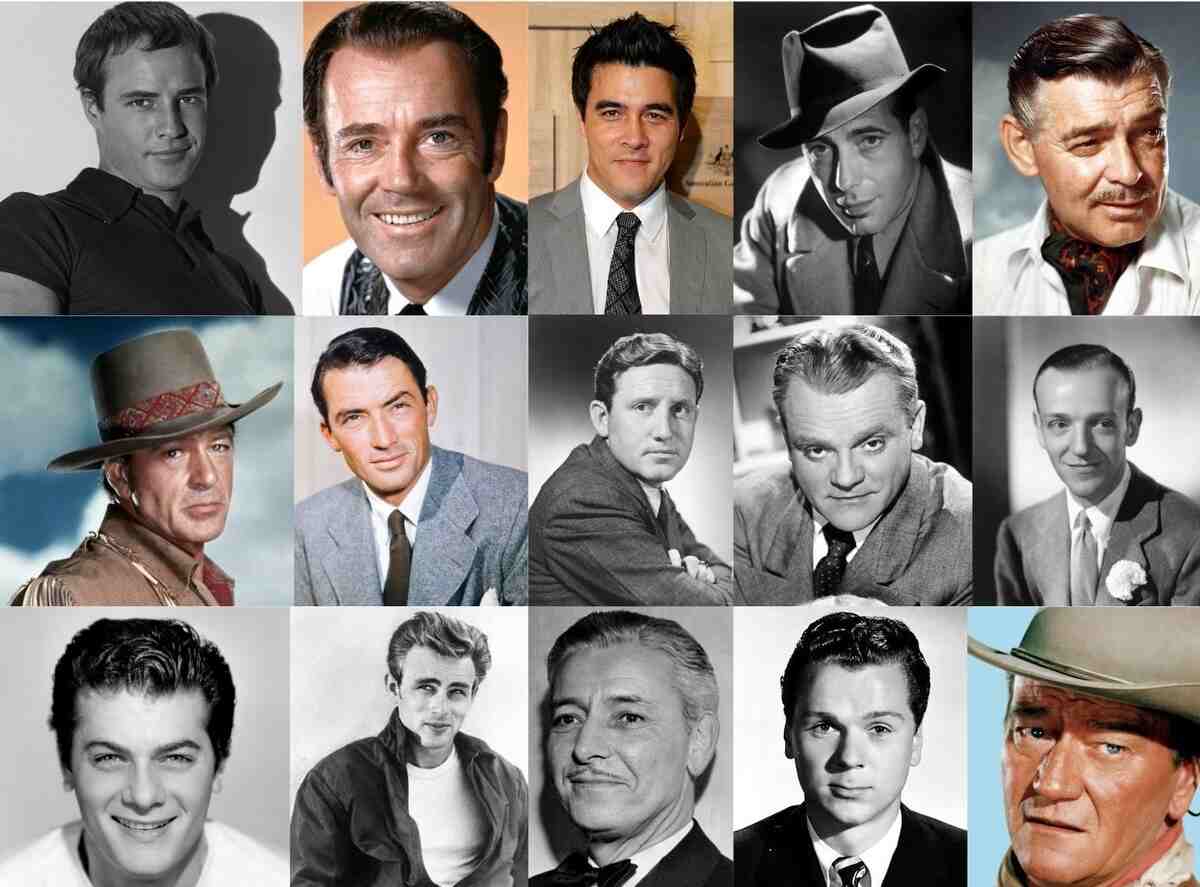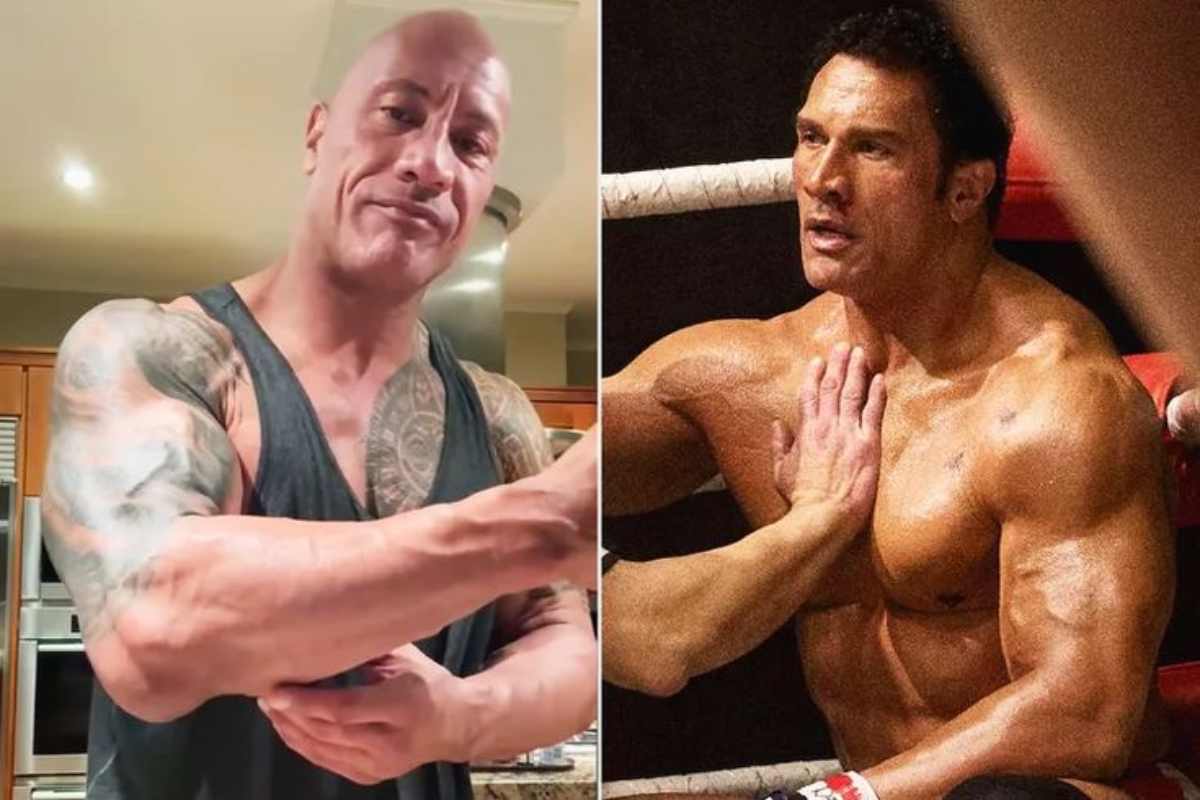The Fair Age of Hollywood, from the late 1920s to the early 1960s, was a term of rare cinematic skill and a big-than-life name. This era created a home of actors whose names have become synonymous with the film’s glamour, drama, and magic. Classic Hollywood Actors defined the art of film acting and left indelible marks on popular culture and collective echo. The following explores some of the most disk figures from this remarkable epoch in film the past.
Top 30 Classic Hollywood Actors
Marlon Brando (1924–2004)
Marlon Brando reformed the as well as of acting with his raw, vivid performances and profound emotional depth. Known for his methodical speaking, Marlon Brando roles in “A Pad Named Wish” and “On the Bank” showed his ability to take in web characters authentically and intensely. His later work, plus the famous role of Vito Corleone in “The Allah,” solidified his gift as one of the most important actors of all time.
Henry Fonda (1905–1982)
Henry Fonda’s career spanned five decades, and he became known for his portrayals of morally upright and earnest characters. His performances in films such as “The Grapes of Wrath” and “Angry Men” highlighted his ability to convey integrity and compassion. Fonda’s understated yet powerful acting style made him a beloved figure in American theater.
Cary Grant (1904–1986)
Cary Grant epitomized the suave, debonair leading man with his easy charm and impeccable comedic timing. Starring in classics like “North by Northwest” and “Bringing Up Baby,” Grant’s on-screen persona was sophisticated and endearing. His versatility allowed him to excel in romantic comedies and thrillers, making him one of Hollywood’s most enduring icons.
James Stewart (1908–1997)
James Stewart’s everyman appeal and distinctive drawl endeared him to viewers forever. Noted for his collaborations with director Frank Capra in films such as “It’s a Wonderful Life” and “Mr. Smith Goes to Washington,” Stewart portrays keen, just, and relatable characters. His ability to convey weakness and strength made him an ideal American actor.
Humphrey Bogart (1899–1957)
Humphrey Bogart’s rugged persona and iconic voice made him a symbol of classic Hollywood calm. His performances in Casablanca and The Maltese Falcon established him as a leading figure in the film noir genre. Bogart’s portrayal of cynical, world-weary characters with a hint of vulnerability resonated with audiences and cemented his place as a vivid legend.
Clark Gable (1901–1960)
Familiar as “The King of Hollywood,” Clark Gable’s charm and masculinity made him one of the era’s most popular leading men. His part as Rhett Butler in “Gone with the Wind” remains one of the most catchy performances in film history. Gable’s rugged charm and dynamic screen presence made him a lasting favorite Medel fan.
Gary Cooper (1901–1961)
Gary Cooper’s quiet strength and stoic cast defined his on-screen persona. He often portrayed heroes with a robust moral compass, as seen in films like “High Noon” and “Sergeant York.” Cooper’s vivid acting style and commanding presence earned him critical approval and a lasting heritage in American theater.
Gregory Peck (1916–2003)
Gregory Peck’s commanding, sound, and dignified presence made him an ideal leading man for roles requiring moral authority and gravitas. His picture of Atticus Finch in To Kill a Mockingbird is commonly regarded as one of the most outstanding performances in movie history. Peck’s ability to convey integrity and compassion made him a lovely figure on & off the screen.
Spencer Tracy (1900–1967)
Spencer Tracy’s vivid acting style & versatility permit him to be good in various past, from comedic to fair. His collaborations with Katharine Hepburn in films like “Guess Who’s Coming to Dinner” showcased his mistake chemistry & acting prowess. Tracy’s dedication to his craft and ability to bring truth to every part made him a good Hollywood legend.
James Cagney (1899–1986)
James Cagney’s dynamic energy & versatility made him one of the most compelling players of his time. Known for his part in gangster movies like The Public Enemy & his Oscar-winning show in Yankee Doodle Dandy, Cagney’s ability to switch between intense play & spirited musical show showed his wide-ranging skill.
Fred Astaire (1899–1987)
Fred Astaire’s grace and elegance as a dancer and actor made him dear in Hollywood musicals. His collaborations with Ginger Rogers in movies such as Top Hat and Swing Time showcased his impeccable dance skills and charismatic screen presence. Astaire’s influence on dance in the film remains unmatched, and his heritage as a performer continues to inspire.
John Wayne (1907–1979)
John Wayne’s towering presence and rugged masculinity made him an enduring icon of American theater. Known for his roles in Westerns like Stagecoach and True Grit, Wayne’s persona as the quintessential cowboy & action hero defined an entire genre. His legacy as a symbol of American home rule and strength continues.
James Dean (1931–1955)
James Dean’s brief but moving career made him a type of youthful rebellion & angst. His shows in “Rebel Without a Cause” & “East of Eden” show the existential struggles of the age. Dean’s untimely death at 24 increased his fairy tale rank, making him a go-on icon of 1950s American ways.
Ronald Colman (1891–1958)
Ronald Colman’s refined elegance and distinctive sound made him a famous leading man during Hollywood’s early sound era. His roles in movies like “A Tale of Two Cities” and “Lost Horizon” showed his ability to convey nobility and vulnerability. Colman’s sophistication and charm left a lasting impression on audiences and critics alike.
Tony Curtis (1925–2010)
Tony Curtis’s matinee idol looks & natural cuteness made him a famous leading man in the 1950s and 1960s. His show in films such as “Some Like It Hot” & “The Defiant Ones” showcased his comedic timing & dramatic range. Curtis’s cuteness & skill made him a dear figure in Hollywood.
Jackie Cooper (1922–2011)
Jackie Cooper’s career began as a baby star in the 1930s & spanned over six decades. Known for his part in the “Our Gang” series & his Oscar-nominated performance in “Skippy,” Cooper successfully shift to adult part in films & telly. His longevity & adaptability in the hard work were testaments to his put up with skill.
Bing Crosby (1903–1977)
Bing Crosby’s smooth grave sound & relaxed demeanor made him one of the most successful entertainers of the 20th century. His performances in films like “Going My Way” & “White Christmas” highlighted his singing talent & easygoing cute. Crosby’s contributions to music & seven movies cemented his legacy as a loved American note.
Sidney Poitier (1927–2022)
Sidney Poitier’s groundbreaking career broke racial barriers in Hollywood & set new standards for African American actors. His powerful performances in movies like “Lilies of the Field” & “In the Heat of the Night” showcased his dignity, power, & emotional depth. Poitier’s cutting-lip reach paved the way for the future making of players.
Steve McQueen (1930–1980)
Steve McQueen’s cool, unruly persona made him an icon of 1960s & 1970s theater. Known as “The King of Cool,” McQueen’s performances in movies like Bullitt & The Great Runoff showcased his screen presence and rugged charm. His enduring appeal & influence on liked culture remain vital to this day.
Errol Flynn (1909–1959)
Errol Flynn’s swashbuckling charm & dashing good looks made him the quintessential action hero of Hollywood’s Golden Age. His roles in films like “The Adventures of Robin Hood” & “Captain Blood” epitomized the romantic adventurer. Flynn’s dynamic performances & charismatic persona made him a beloved figure in classic theater.
William Powell (1892–1984)
William Powell’s sophisticated wit and charming demeanor made him a famous leading man in the 1930s & 1940s. His role as Nick Charles in the “Thin Man” series, opposite Myrna Loy, showcased his impeccable comedic timing & effortless chemistry with his co-stars. Powell’s elegance & charm made him a beloved figure in classic cinema.
Paul Newman (1925–2008)
Paul Newman’s piercing blue eyes & charming charisma made him one of his generation’s most enduring and beloved stars. His show in films like “Cool Hand Luke” & “Butch Cassidy & the Sundance Kid” showcased his range & depth as an actor. Newman’s philanthropic efforts & enduring appeal solidified his status as a Hollywood legend.
Buster Keaton (1895–1966)
Buster Keaton’s innovative physical comedy & stone-faced expression made him one of the most excellent silent flim comics. His work in films like “The General” & “Sherlock Jr.” showcased his extraordinary skill for elaborate slow & visual gags. Keaton’s influence on the art of comedy & films remains profound.
Alan Ladd (1913–1964)
Alan Ladd’s calm, stoic look, & rugged good looks made him notable in the 1940s and 1950s. His roles in films like This Gun for Hire & Shane showcased his ability to portray tough, hard-edged characters & noble heroes. Ladd’s enigmatic screen presence & talent left a lasting impression on classic cniman.
Frank Sinatra (1915–1998)
Frank Sinatra’s smooth voice & charismatic presence made him one of the most iconic entertainers of the 20th century. His performances in films like “From Here to Eternity” & “The Man with the Golden Arm” showcased his acting skill & dramatic range. Sinatra’s influence on music & films remains significant, & his legacy as a cultural star endures.
Anthony Quinn (1915–2001)
Anthony Quinn’s powerful presence & versatility permit him to excel in various parts. His shows in films such as “Viva Zapata!” and “Zorba the Greek” displayed his ability to portray big-than-life characters with intensity & charm. Quinn’s dynamic career & commanding screen presence made him a respected & meet figure in cniman.
Fredric March (1897–1975)
Fredric March’s versatility & commanding presence made him one of the most respected actors of his time. His part in movies such as “Dr. Jekyll & Mr. Hyde” & “The Best Age of Our Lives” showcased his ability to tackle various characters & genres. March’s dedication to his craft & skill made him an actual Hollywood big.
Lionel Barrymore (1878–1954)
Lionel Barrymore’s distinguished career in movies and theater made him a respected figure in Hollywood. Known for his roles in films such as “It’s a Wonderful Life” & “Key Largo,” Barrymore’s ability to draw kindly and villainous characters showcased his range and skill. His contributions to theater & his legacy as part of the Barrymore acting dynasty are well-regarded.
Edward G. Robinson (1893–1973)
Edward G. Robinson’s typical sound and intense performances made him one of the most memorable players of his era. Known for his part in robber films like Little Caesar and his powerful act in Double Indemnity, Robinson’s ability to convey menace & turn made him a standout figure in best Hollywood.
Robert Taylor (1911–1969)
Robert Taylor’s matinee idol looks and versatile acting made him a famous leading man in the 1930s and 1940s. His performances in movies like Camille and Waterloo Bridge showcased his ability to handle lovely and dramatic roles. Taylor’s enduring appeal and cuteness made him a beloved figure in Hollywood.
Douglas Fairbanks (1883–1939)
Douglas Fairbanks’s swashbuckling charm and athleticism made him one of the top stars of the silent film era. Known for his roles in adventure films like “The Thief of Bagdad” and “The Mark of Zorro,” Fairbanks’s dynamic performances and charismatic presence defined an era of Hollywood spectacle and heroism.
Roscoe Arbuckle (1887–1933)
Roscoe “Fatty” Arbuckle’s physical comedy and charismatic presence made him one of the most popular comedians of the silent film era. His work in films like “The Butcher Boy” and “Coney Island” showcased his talent for slapstick and visual humor. Despite his tragic fall from grace due to a highly publicized scandal, Arbuckle’s contributions to early cinema continue to be appreciated for their comedic genius and innovation.
Lon Chaney (1883–1930)
Lon Chaney’s transformative performances and makeup mastery earned him the byname “The Man of a Thousand Faces.” His iconic roles in silent horror films like “The Phantom of the Opera” & “The Hunchback of Notre Dame” showcased his ability to embody complex, often grotesque characters with empathy and depth. Chaney’s pioneering work in the horror genre laid the foundation for future generations of actors and filmmakers.
Harpo Marx (1888–1964)
Harpo Marx’s silent clown persona and zany antics made him one of the most beloved comedians of the early sound era. As part of the Marx Brothers comedy team, Harpo’s physical comedy and musical talent delighted audiences in films like “Duck Soup” and “A Night at the Opera.” His whimsical charm and boundless energy made him an enduring icon of classic comedy.
Katharine Hepburn (12 May 1907 to 29 June 2003)
Katharine Hepburn’s fierce independence and intellectual sophistication made her one of the most respected actresses in Hollywood history. Known for her collaborations with Spencer Tracy in films like “Adam’s Rib” and “Guess Who’s Coming to Dinner,” Hepburn’s strong-willed characters challenged traditional gender roles and earned her multiple Academy Awards. Her legacy as a trailblazer for women in film endures to this day.
Bette Davis (5 April 1908 – 6 October 1989)
Bette Davis’s fierce intensity and indomitable spirit made her one of the most iconic actresses of the Golden Age of Hollywood. Known for her potent performances in films like “All About Eve” & “What Ever Happened to Baby Jane?” Davis’s willingness to portray complex, flawed characters earned her critical acclaim and adoration from audiences. Her legacy as a Hollywood legend continues to inspire generations of actors.
Audrey Hepburn (4 May 1929 to 20 January 1993)
Audrey Hepburn’s grace, elegance, and timeless beauty made her an international icon of style and sophistication. Known for her iconic roles in films like “Roman Holiday” and “Breakfast at Tiffany’s,” Hepburn’s ethereal presence and humanitarian efforts endeared her to fans worldwide. Her legacy as a fashion icon and beloved actress remains unparalleled.
Ingrid Bergman (29 August 1915 to 29 August 1982)
Ingrid Bergman’s luminous beauty and talent as an actress made her one of the most revered stars of Hollywood’s Golden Age. Well Known for her collaborations with director Alfred Hitchcock in films like “Notorious” and “Spellbound,” Bergman’s capacity to convey vulnerability and strength captivated audiences worldwide. Her legacy as one of cinema’s greatest actresses endures through her timeless performances.
Greta Garbo (18 September 1905 to 15 April 1990)
Greta Garbo’s enigmatic allure and haunting performances made her one of the most mysterious and iconic stars of the silent and early sound era. Known for her roles in films like “Camille” and “Grand Hotel,” Garbo’s luminous presence and expressive eyes conveyed a depth of emotion that resonated with audiences. Her legacy as a cinematic legend continues to fascinate and inspire.
Marilyn Monroe (1 June 1926 to 4 August 1962)
Marilyn Monroe’s intoxicating blend of innocence and sensuality made her one of the most enduring symbols of Hollywood glamour. Known for her iconic roles in films like “Some Like It Hot” and “The Seven Year Itch,” Monroe’s charisma and vulnerability captivated audiences and cemented her status as a cultural icon. Her tragic death at a young age only added to her mystique, ensuring her place in Hollywood history.
Elizabeth Taylor (27 February 1932 to 23 March 2011)
Elizabeth Taylor’s unparalleled beauty, talent, and tumultuous personal lifestyle made her one of Hollywood’s most celebrated and controversial stars. Known for her iconic performances in films like “Cleopatra” and “Who’s Afraid of Virginia Woolf?” Taylor’s magnetic presence and fiery personality captivated audiences for decades. Her legacy as a screen legend and style icon endures through her timeless films and enduring influence on popular culture.
Judy Garland (10 June 1922 to 22 June 1969)
Judy Garland’s extraordinary talent and tragic personal struggles made her one of Hollywood’s most beloved and iconic figures. Well Known for her iconic character as Dorothy in “The Wizard of Oz” and her powerful performances in films like “A Star Is Born,” Garland’s voice and vulnerability touched the hearts of millions. Despite her tumultuous life, her legacy as a legendary entertainment and cultural icon remains undiminished.
Marlene Dietrich (27 December 1901 to 6 May 1992)
Marlene Dietrich’s sultry voice and androgynous beauty made her one of classic Hollywood’s most enigmatic and alluring stars. Known for her iconic roles in films like “The Blue Angel” and “Destry Rides Again,” Dietrich’s fearless performances and unapologetic sensuality challenged traditional notions of femininity and sexuality. Her legacy as a cinematic pioneer and style icon inspires generations of performers.
Joan Crawford (23 March 190[Note 1] – 10 May 1977)
Joan Crawford’s indomitable spirit and relentless drive made her one of Hollywood’s Golden Age’s most formidable and enduring stars. Known for her iconic performances in films like “Mildred Pierce” & “Whatever Happened to Baby Jane?” Crawford’s intensity and ambition propelled her to the heights of stardom. Despite her complex personal life, her legacy as a Hollywood legend remains undiminished.
Barbara Stanwyck (16 July 1907 – 20 January 1990)
Barbara Stanwyck’s fierce independence and versatility made her one of Hollywood’s Golden Age’s most respected and admired actresses. Known for her powerful performances in films like “Double Indemnity” and “Stella Dallas,” Stanwyck’s ability to portray strong, complex women earned her critical acclaim and adoration from audiences. Her legacy as a trailblazer for women in film continues to inspire generations of actors.
Claudette Colbert (13 September 1903 to 30 July 1996)
Claudette Colbert’s grace, wit, and luminous beauty made her one of Hollywood’s Golden Age’s most beloved and versatile actresses. Known for her iconic roles in films like “It Happened One Night” & “The Palm Beach Story,” Colbert’s comedic timing and effortless charm endeared her to audiences worldwide. Her legacy as a cinematic legend and style icon continues to shine brightly.
Grace Kelly (12 November 1929 to 14 September 1982)
Grace Kelly’s timeless elegance and ethereal beauty made her one of Hollywood’s Golden Age’s most iconic and beloved stars. Known for her classic performances in films like “Rear Window” and “To Catch a Thief,” Kelly’s grace and poise captivated audiences and earned her an Academy Award. Her legacy as a Hollywood princess and fashion icon remains indelible.
Ginger Rogers (16 July 1911 to 25 April 1995)
Ginger Rogers’s exceptional talent as a dancer and her dynamic on-screen chemistry with Fred Astaire made her one of the most beloved stars of Hollywood’s Golden Age. Known for her roles in iconic musicals like “Top Hat” and “Swing Time,” Rogers’s grace, style, and vivaciousness captivated audiences and earned her widespread acclaim. Her legacy as a legendary performer and cultural icon endures through her timeless contributions to film and dance.
Mae West (17 August 1893 to 22 November 1980)
Mae West’s bold, provocative persona and sharp wit made her one of early Hollywood’s most iconic and controversial figures. Known for her risqué humor and fearless approach to sexuality, West’s performances in films like “She Done Him Wrong” and “My Little Chickadee” challenged social norms and pushed the boundaries of censorship. Her legacy as a trailblazer for female empowerment and sexual liberation continues to resonate in popular culture.
Vivien Leigh (5 November 1913 – 8 July 1967)
Vivien Leigh’s breathtaking beauty and talent have made her one of the most celebrated actresses of her generation. Known for her iconic performances as Scarlett O’Hara in “Gone with Wind” & Blanche DuBois in “A Streetcar Call Desire,” Leigh’s unparalleled ability to embody complex, emotionally charged characters earned her multiple Academy Awards. Her legacy as a cinematic legend and cultural icon endures through her timeless portrayals on screen.
Lillian Gish (14 October 1893 – 27 February 1993)
Lillian Gish’s ethereal beauty and profound talent made her one of the most revered actresses of the silent film era. Known for her collaborations with director D.W. Griffith in films as well “The Birth of a Nation” & “Intolerance,” Gish’s expressive performances and emotional depth captivated audiences and earned her a place in cinematic history. Her legacy as a pioneer of silent film and a trailblazer for women in Hollywood remains unmatched.
Shirley Temple (23 April 1928 to 10 February 2014)
Shirley Temple’s infectious charm and boundless talent made her one of Hollywood’s most beloved child stars. Known for her iconic roles in films like “Bright Eyes” and “The Little Princess,” Temple’s endearing performances and precocious personality endeared her to audiences worldwide. Her legacy as America’s sweetheart and a symbol of hope and optimism during the Great Depression continues to inspire generations of fans.
Lauren Bacall (16 September 1924 to 12 August 2014)
Lauren Bacall’s sultry voice, smoldering beauty, and magnetic presence made her one of Hollywood’s Golden Age’s most iconic leading ladies. Known for her electrifying on-screen chemistry with Humphrey Bogart in films like “To Have and Have Not” and “The Big Sleep,” Bacall’s relaxed sophistication and smoky allure captivated audiences and solidified her status as a cinematic legend. Her legacy as a trailblazer for strong, independent women in film endures through her timeless performances.
Marx Brothers Chico (22 March 1887 – 11 October 1961), Harpo (23 November 1888 – 28 September 1964), Groucho (2 October 1890 – 19 August 1977)
The Marx Brothers, comprising Chico, Harpo, and Groucho, were comedic geniuses whose anarchic humor and razor-sharp wit revolutionized the comedy genre in film and vaudeville. Known for their irreverent antics and rapid-fire wordplay in movies like “Duck Soup” and “A Night at the Opera,” the Marx Brothers delighted audiences with their zany antics and absurdist humor. Their legacy as comedy pioneers and masters of satire continues to influence generations of comedians and filmmakers.
Sophia Loren (born 20 September 1934)
Sophia Loren’s smoldering beauty and formidable talent made her one of the most celebrated actresses of the 20th century. Known for her captivating performances in films like “Two Women” and “Marriage Italian-Style,” Loren’s screen presence and emotional depth earned her critical acclaim and many awards, as well as an Academy Award for Best Actress. Her legacy as an international icon of beauty and talent endures through her timeless contributions to cinema.
Jean Harlow (3 March 1911 – 7 June 1937)
Jean Harlow’s platinum blonde hair and sizzling sex appeal made her one of the most iconic and enduring sex symbols of classic Hollywood. Known for her roles in films like “Dinner at Eight” and “Red Dust,” Harlow’s combination of innocence and allure captivated audiences and earned her fans. Her tragic death at a young age only added to her mystique, ensuring her place as a timeless Hollywood legend.
Carole Lombard (6 October 1908 to 16 January 1942)
Carole Lombard’s irrepressible charm and comedic flair made her one of the most beloved actresses of Hollywood’s Golden Age. Known for her roles in screwball comedies like “My Man Godfrey” and “Twentieth Century,” Lombard’s infectious energy and impeccable timing endeared her to audiences and earned her widespread acclaim. Her untimely death in a plane crash cut short a promising career, but her legacy as a comedic genius and beloved star endures through her timeless performances.
Mary Pickford (8 April 1892 to 29 May 1979)
Mary Pickford’s luminous beauty and extraordinary talent made her one of the most beloved and influential actresses of the silent film era. Known as “America’s Sweetheart,” Pickford’s iconic roles in films like “Rebecca of Sunnybrook Farm” and “Poor Little Rich Girl” endeared her to audiences worldwide and helped shape the early days of Hollywood. Her legacy as a pioneering actress and co-founder of United Artists continues to inspire generations of filmmakers and performers.
Conclusion
The classic Hollywood era was indubitably a golden age of theater, marked by the rare skill & enduring legacy of famous players & actresses. From the suave sophistication of Cary Grant to the captivating cuteness of actress Hepburn, these legendary figures captivated viewers with their skill, charm, & timeless performances.









